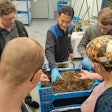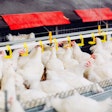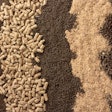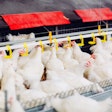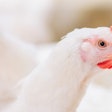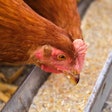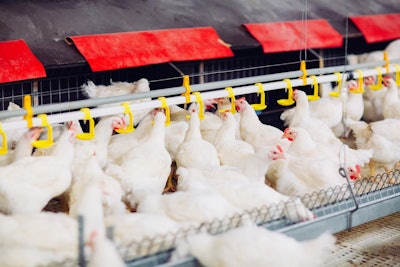
Feed additives, such as essential oils and probiotics, can boost broiler growth and health without the use of antibiotics, research published in the May issue of Poultry Science revealed.
“This small-scale study offers preliminary evidence supporting the use of feed additive supplementation as an alternative to antibiotic growth promoters (AGPs) in broiler production, potentially contributing to more sustainable practices. The research focused on a descriptive analysis of the chicken excreta microbiota following a single experiment involving two feed additives (a probiotic and an essential oils blend),” explained Erika Ganda, assistant professor of food animal microbiomes at Pennsylvania State University and Ana Fonseca, graduate assistant in Ganda’s research group
Antimicrobial resistance is a growing concern for consumers. As a result, some poultry producers have adopted no antibiotic ever production systems.
Comparing antibiotic use to feed additives
During the study, a total of 320 one-day old chicks were given one of four experimental diets: a standard diet, a standard diet mixed with the antibiotic bacitracin methylene disalicylate, an essential oils blend of oregano oil, rosemary and red pepper or the probiotic Bacillus subtilis.
Essential oils are naturally produced by plants with strong bacteriostatic properties. They have strong antioxidant and pathogen-fighting properties and can also stimulate appetite and digestion, which can aid early growth and development. Probiotics are live microorganisms that can help confer a health benefit to their host, in this case poultry.
To monitor the results, the chicks were weighed on day 10 and day 21. In addition, the feed consumed per pen was also tracked and the researchers also calculated daily body weight gain average, feed intake and feed conversion ratio.
According to the study, the research team found that supplementing the diets of broiler chicks with probiotics over 21 days increased the abundance of good intestinal microorganisms. This was tracked through daily feces monitoring that used DNA analyzation to identify the bacteria present.
Research into probiotics and essential oils is still in its infancy. More work is needed to better understand how these natural feed additives impact broiler health outcomes, as well as the gastrointestinal tracts of poultry.
“Our current research is concentrated on the functionality of feed additives. From this study, we've gained insights into the composition of these additives and their impact on performance and shifts in the excreta microbiota. Moving forward, we aim to investigate the substances produced in the chicken’s gut when we feed these additives and explore the interactions within the complex microbial communities, the gastrointestinal tract's immune system and overall gut health,” added Ganda and Fonseca.










